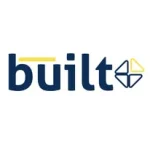
There are generally two ways of managing business transactions or records: (1) manually, through the use of notebooks or exercise books and (2) electronically, through the use of computerized accounting software like Built.
In managing your accounting records or business transactions, these three (3)points should be of great concern:
- Recognition of revenue
Accounting standards provide two main bases for this: (1) cash basis; under this, you recognize revenue only when you have received payment for the goods delivered or service provided and (2) accrual basis; under this, you recognize revenue whether payment has been received or not. It adds that, so far as there is an obligation for the customer to pay, the revenue has been earned and therefore must be recognized, whether payment has been received or not. Revenue could be direct (relating to normal trading activities) or indirect (those that are not usual to a business’ core operations. Failure to do this means that you may over/under state your revenue.
- Recording of expenses
Like revenue, accounting standards provide the same two main bases for recognition of expenses. Under the cash basis, you record expenses only when you have paid for them. However, under the accrual basis, so long as there is an obligation for you to make a payment, you must record expenses whether you have paid for them or not. Again, these could be direct (relating to normal trading activities) or indirect. Failure to do this means that you may over/understate your expenses.
- Recording of cash and bank transactions
This is the recording of all cash and bank and related transactions. This is done using a cash book, which allows recording for receipts from customers and other sources and payments to suppliers as well as payments for other expenses. Doing this well will enhance your chances of getting a good cash flow statement and statement of financial position for informed cash flow and other financial decisions.
While manual systems can facilitate the above and more, computerized systems are faster, more convenient, time and cost-saving and safer. Even though some systems are paid for, some are free to use. You will, however, need to pay usually a small fee for some features like payroll and management of taxes.
Remember that you can get to use a computerized system like Built to manage your books/accounts for free and also get support if need be.












2 replies on “How to manage your accounts during COVID-19”
1. what are the criteria that needs to be met before revenue can be recognized?
2. What are the elements of financial statements?
3. What are the components of financial statements?
4. How is donation of capital nature (ie capital expenditure) be treated?
Hello Nii,
Thank you for reading our article. Please find responses to your questions below:
1. IFRS 15 regulates revenue recognition. It provides that revenue should be recognized when performance obligations are met. For example, if you are contracted to provide a service, you can only recognize revenue when the service (performance obligation) is provided.
2. They are: assets, liabilities, equity, incomes and expenses.
3. They include: statements of financial position, profit or loss and other comprehensive income, cash flow and changes in equity as well as a summary of significant accounting policies and notes to the accounts.
4. If this relates to donation of say, a motor vehicle, then derecognise it from your books by:
DR Donation
CR Motor Vehicle, with the carrying amount of the asset. If this does not help, then kindly be more specific with your question.
I hope these help.